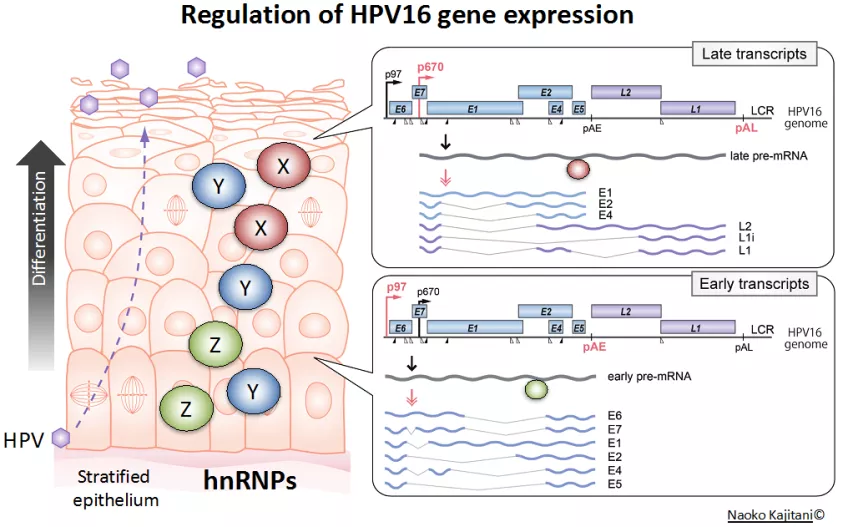Molecular Virology
Human papillomavirus (HPV) infections cause 500.000 cases of cervical cancer each year in the world (400 cases in Sweden), and 250.000 deaths (120 cases in Sweden). HPV16 is the most common cancer-associated HPV type. The majority of all HPV16 infections is cleared by the host but a fraction persists that may cause cancer. The full life cycle of HPV16 requires cell proliferation at the early stage, and terminal cell differentiation at the late stage. HPV16 infections that fail to leave the early stage continue to drive cell proliferation to cause cervical lesions that may progress to cancer. We are investigating how the switch from the early to the late stage of the papillomavirus life-cycle is controlled by viral and cellular factors. HPV16 makes extensive use of the cellular splicing machinery to generate different alternatively spliced and polyadenylated HPV16 mRNAs in response to cell proliferation and terminal differentiation. HPV16 also perturbs these RNA processing machineries to create an optimal environment for the HPV16 life cycle. We will identify cellular factors that control HPV16 gene expression, and the signal transduction pathways and kinases that control these factors. Such factors could be used as predictive biomarkers for women at risk of developing cancer, or as targets for antiviral therapy. In addition to HPV16, we are studying the role of HPV type 6 (HPV6) in laryngeal papillomas in adults and in particular in children. This HPV6 project is a collaboration between several researchers at Lund university and Skåne university hospital.
Molekylär virologi - - Lunds universitet




